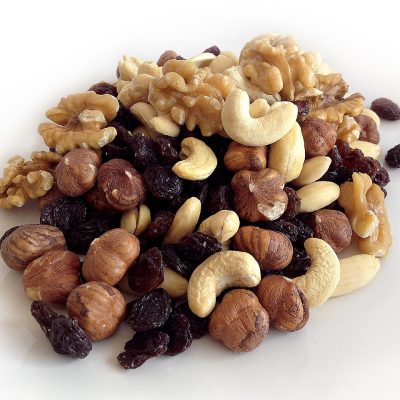Do you want to look muscular and strongly built? “Yes, sure.” You do not have to rely only on the exercises in a gym to achieve your dream goal. No doubt, exercise helps you burn extra calories and shape your physique. A good nutrient dose is essential for your body to remain healthy and fit. A balanced diet is the best key to good health, as various dietary elements play their role. Protein is the most vital food component, and the dietary protein benefits are too many for you to list.
Where To Find Dietary Protein Benefits?
Proteins are essential for cell growth, and you require a regular dose for your muscles to grow and function efficiently. Various natural sources of animal and plant-based proteins are found all around in your easy approach. The chief-most are; meat, fresh fish, poultry, eggs in different forms, dairy, vegetables, grains, and nuts. These include both the raw and the processed proteins meant for human needs.
How Much Do You Need?
To enjoy the dietary protein benefits maximum, you need from 0.8 to 1.8 gm of protein per kilogram of body weight. It changes to 56 to 126 grams daily for a person weighing 70 to 90 kilograms on average.
Components
Dietary proteins are chemical substances made up of carbon, hydrogen, oxygen, nitrogen, sulphur, phosphorous, etc. These are in the form of amino acids found in your diet. These building blocks of muscles are required to build, repair and maintain muscle tissues normally.
Together with fats and carbohydrates, proteins are also the macro-nutrients meaning thereby that the human body needs them in large amounts. On the other hand, fibres, vitamins, and minerals are micronutrients that your body requires only in small amounts. Like those of all other food components, the dietary protein benefits are useful in many respects.
How It Helps You Gain Muscles’ Size and Shape
A number of research surveys have shown that dietary protein helps your muscles gain size and strength. The simple intake of dietary proteins alone cannot do anything good to your muscle’s size and shape. This is only a myth that the extra amount of protein intake adds to the mass of your muscles. What actually happens is a different game.
The building blocks of proteins, amino acids, are always there to assist and cause many chemical reactions in your body. When you undertake exercise or weight training, your muscles develop tiny micro-tears within themselves. After the exercise, you eat a healthy dose of dietary proteins that break into amino acids. These amino acids fill and repair the tears in the muscles, causing a healthy gain in muscles’ mass and shape.
Most Common Benefits
Usually numerous in numbers, the dietary protein benefits are really great. Some chief benefits are as below.
- Higher overall protein intake results in higher muscle mass and vice versa. Both animal and plant proteins are vital here. The heavy size and strength of the front muscles of the thigh are because of the heavy intake of proteins.
- All proteins, no matter what the source is, are there to ensure bone density, muscle mass, and strength. No other nutrient does all this at a time to maintain bones and muscles’ health.
- A sufficient amount of dietary proteins secures the positive nitrogen balance inside your body. With this delicate nitrogen balance, your system works properly.
- According to the American Journal of Clinical Nutrition research, dietary proteins tie themselves to bone density. They also affect muscle mass and strength, irrespective of their source.
- Owing to so many dietary protein benefits, bodybuilders are just gulping down protein shakes to ensure muscle gain.
- Dietary proteins also help in weight loss; therefore, dieters are gobbling down protein bars hoping for quick weight loss.
- Among many other dietary protein benefits, using proteins in making hair, nails, skin, and blood is great. Besides, proteins also play a vital role in making enzymes, co-enzymes, cartilage, hormones, and other chemical substances.
Some Additional Tips
- Your body does not store proteins; hence, fats and carbohydrates do not make you bulky. These two always get stored in your body and are used whenever needed. On the contrary, proteins always need to be supplied afresh whenever required, as your body has no reserves to draw on whenever it needs them.
- It infers that you should keep eating proteins all day, but this is not the case. You need less total protein than you might think. But better food sources should always be there to give you more dietary protein benefits.
- According to the U.S. Department of Health and Human Services, extra proteins never add extra strength to your body muscles. Taking proper exercises regularly is best to build the size and shape of muscles and maintain them long afterwards. Proteins only assist this whole process; you need their humble amount to make your body function normally.
- In terms of regular meals, three daily servings provide seven ounces of protein. These are sufficient to satisfy the needs of teenage boys and active adult males.
- Five ounces of proteins are enough for children under the age of six, most women and some older people. Two daily servings are enough for a total of five ounces of dietary proteins.
- Two daily servings for six ounces are sufficient for the needs of teen girls, active women, and older people.
- Proteins are also the guards of your body. The antibodies formed against the attacking germs’ proteins are also proteins. These antibodies (proteins) attack these bacteria and kill them to rid the patient of the infection.
Conclusion
High-protein and low-carbohydrate diets are most welcome everywhere in the world, for they provide size and strength to your muscles.
Featured Image Source: Pixabay
Also Read:





